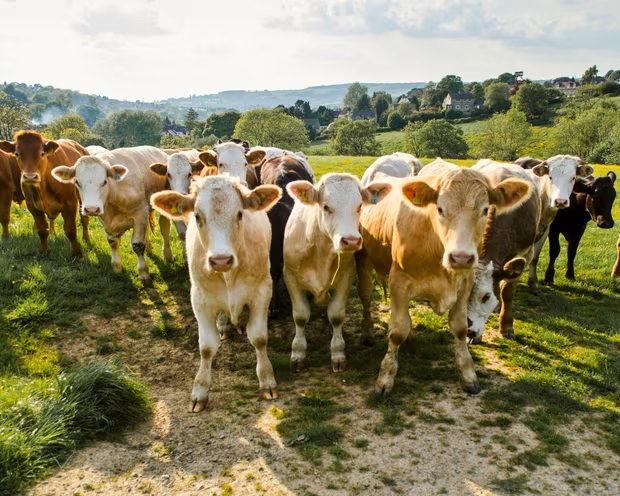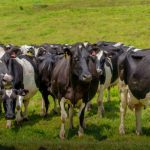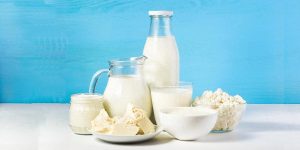
New study warns of drastic milk yield declines by 2050 due to intensifying heat stress and climate change.
Extreme heatwaves pose a severe and growing threat to global dairy production, with scientists warning of significant declines in milk yields. An Israel-based study, drawing on 12 years of records from over 130,000 cows, found that extreme heat reduces a dairy cow’s milk-producing ability by 10%. Even a single hour of wet-bulb temperature above 26$^\circ$C can decrease a cow’s daily milk output by 0.5%, with lingering effects persisting for up to 10 days post-exposure. This stark reality signals a critical challenge for the international dairy community as climate change intensifies.
Projections for mid-century paint a concerning picture: by 2050, average daily milk production could see a global reduction of 4% due to worsening heat stress. Researchers from the Universities of Jerusalem, Tel Aviv, and Chicago emphasize that this decline will disproportionately impact the 150 million households worldwide that rely directly on milk production for their livelihoods. The most severe consequences of heat stress on dairy farms are expected in South Asia, a region projected to account for over half of the global growth in milk production in the coming decade, making it highly vulnerable to debilitating heatwaves.
While the dairy industry contributes to climate change—cattle are responsible for approximately a third of human-caused methane emissions—farmers are proactively implementing adaptation strategies to mitigate heat stress. In Israel, where the study was conducted, nearly all farms utilize various technologies, including providing access to shade and direct cooling methods such as ventilation and sprinklers. These efforts are crucial for animal welfare and maintaining productivity in increasingly challenging environmental conditions.
However, the study also revealed the limitations of current cooling strategies. On days exceeding 24$^\circ$C, these methods were only able to inhibit 40% of the negative impact of extreme heat on dairy production. This suggests that while essential, existing technologies are insufficient to fully counteract the escalating threat. Experts are now urging policymakers to explore broader, more holistic strategies that not only cool cows but also reduce other stressors like confinement and calf separation, which make cows more susceptible to heat and less resilient.
The findings underscore the urgent need for comprehensive solutions to safeguard global food security and the stability of the dairy sector. Policymakers, producers, and researchers must collaborate on innovative strategies, including genetic selection for heat tolerance and improved farm management, to ensure the long-term sustainability of milk production in a rapidly warming world. This forward-looking approach is vital to protect both the livelihoods of dairy farmers and the global supply of essential dairy products.
Source: The Guardian: Extreme heatwaves may cause global decline in dairy production, scientists warn
You can now read the most important #news on #eDairyNews #Whatsapp channels!!!
🇺🇸 eDairy News INGLÊS: https://whatsapp.com/channel/0029VaKsjzGDTkJyIN6hcP1K




















